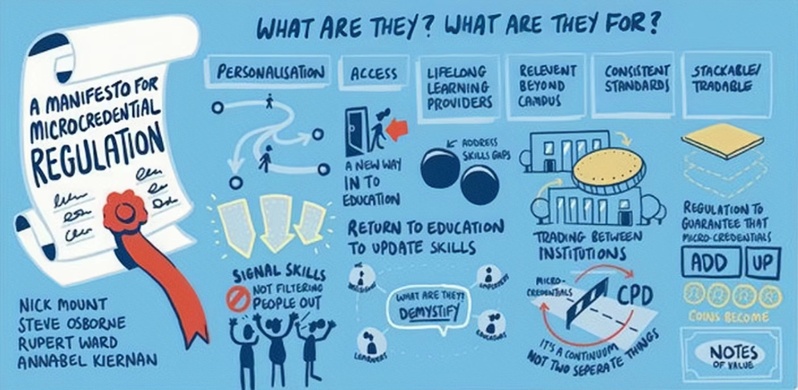The Online Learning Summit held at the University of Leeds in July, 2023, explored how design and innovation inform sustainable and scalable approaches to online education and the online learners we collectively serve. A key aim of this event is to design an equitable digital and in-person experience, so virtual attendees will have the chance to engage fully with the summit themes.
This two-day event attracted educators, researchers, and practitioners in learning design, artificial intelligence, lifelong learning and accessibility to discuss the challenges and opportunities in online education. Prof Rupert Ward, Executive Dean of SBC, shared his insights as an expert in learning innovation and micro-credentialing in the panel session titled “A Manifesto for Micro-credential Regulation”.

Prof Rupert Ward, Executive Dean of SBC
Universities are increasingly considering adopting micro-credentials for delivering greater flexibility to support lifelong learning agendas and a means of making credit-bearing, university education accessible to new learners through online provision. In this discussion, senior university leaders got to the heart of their institutional thinking on micro-credentials, the opportunities and risks that they represented and the strategies to minimise the likelihood of regulatory challenge.
Prof Rupert Ward said: “Most institutions have been struggling with how to enable more accessible and effective learning through badging and micro-credentialing. Our panel discussed the need for common agreement between institutions on how to enable badging and micro-credentialing both within and across institutions.”

The Digital Credentials Consortium (DCC) brought about practitioners with expertise in digital academic credentials and lifelong learning to through a community call led by Massachusetts Institute of Technology, MIT in July 2023. Prof Rupert Ward was invited to present a framework for strategically and thoughtfully implementing micro-credentialing initiatives in higher education.
Materials and resources have become much more approachable to learners thanks to the fast development of technology. The great potential of digital credentials will help improve online delivery, education evaluation, employee performance review as well as further development in higher education and job market.
Considering the challenges and risks faced with pioneers, academic credentials will better fulfil the role and bring more benefits to learners if we can explore barriers and bridge technology with micro-credentials in a regulated, standardized and trusted way.
Prof Rupert Ward said: “Sheryl Grant and I have been developing a Universal Micro-credential Framework (UMF) to address many of the issues raised by the DCC and others. We discussed the UMF with DCC members explaining its component parts and how these can support all higher education institutions in implementing badging and micro-credentialing in a coherent and cohesive way.”
The Digital Credentials Consortium was founded in 2018 by leading universities with expertise in the design of verifiable digital credentials. It proposes to modernize the concept of credentials by improving how skills and competencies are conveyed and recognized. It is hoped that this will strengthen trust and enable additional value in how academic credentials are considered within nations and globally.





